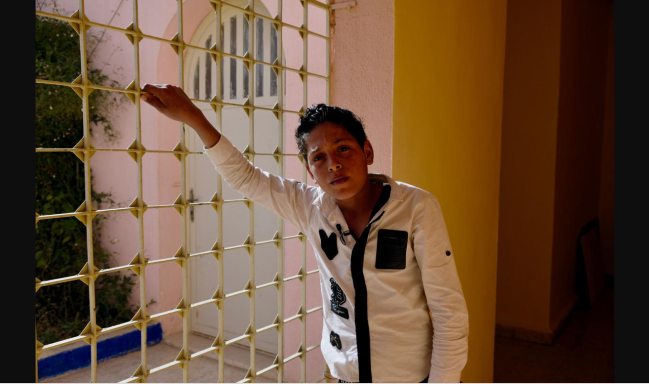Syrian Children Fear Return to War Torn Homeland
Friday, March 15, 2019

• Global survey examines fears and dreams of Syrian children, and their peers around the world
• Children, regardless of geography or circumstance, are increasingly worried about war and climate change
• International aid agency World Vision says refugee children and their families must be protected from forced returns.
Eight years after the war began in Syria (March 15), young refugees are still living in fear of violence. That’s despite many of them now having lived in host countries for much, if not all of their lives.
Aid agency World Vision surveyed Syrian children in Jordan and Lebanon about their fears and dreams.
Almost all of the Syrian children who mentioned fears in 2019 were concerned about losing family members (19 per cent) and war and violence (42 per cent). The numbers are almost identical to a similar survey in 2017.
“These children are haunted by their experiences in Syria. Many have been born outside of Syria and are growing up hearing stories of war and destruction back home,” says World Vision’s Syria Response Director, Marc-Andre Hensel.
“It’s why many of these children told us they don’t want to return home any time soon.”
World Vision Australia's Chief Advocate, Tim Costello, says the international community must protect refugees from forced returns.
"Conditions in Syria are not yet conducive for returns and while children are living in fear inside refugee camps, families are also too scared to go back home. There should be no forced returns until there are guarantees that refugees will be protected," says Mr Costello.
World Vision is also calling on governments to meet children’s basic needs, including educational and psychological needs.
“I am scared to go back to Syria, because… what if a bomb fell on us? What if my younger siblings, went somewhere to play… and a bomb hits? God forbid.” – 10-year-old Habiba.
While the Syrian children spoken to are now living in host countries perceived to be safe, often they have few rights, lack access to social infrastructure and face increased vulnerability to violence in the form of early marriage and child labour.
World Vision also surveyed children living in Europe and Australia. It found that regardless of geography or circumstance, there were more similarities than differences. However, for Syrian children, their fears were much more imminent.
“My biggest dream is to learn and study to become a doctor - to treat and cure people. But because of the war that started in Syria, I couldn’t achieve that dream. Now that I am in Jordan, I still want to pursue my dream of studying, but I was forced to go out to work to support my family. I couldn’t continue studying.” – Sara, 15.
Across the rest the world, children’s dreams were overwhelmingly similar, with many speaking of future professions (37%), finding love and happiness (16%) and ending conflict and climate change (14%).
World Vision Australia's chief advocate, Tim Costello, and World Vision’s Syria Response Director Marc-Andre Hensel are available for comment. Mr Hensel is attending the third Brussels Conference on Supporting the Future of Syria and the Region (March 12 – 14).
For interviews or further information please contact:
Brianna Piazza (Emergencies Media Officer) 0408 624 934 or brianna.piazza@worldvision.com.au
Notes on the survey:
The Fears and Dreams survey was first conducted in 2017 and can be found here: www.wvi.org/fearsanddreams
The 2019 version includes fresh data from refugee host countries, and now sees the inclusion of Spain, Austria, Switzerland, the United Kingdom and Japan
Notes on World Vision:
World Vision has worked with Syrian children since the war began. In 2018, the charity reached over 1.2 million people in Syria, Lebanon, Jordan, and Turkey. An estimated 700,000 were children.
PICTURE: "My biggest fear is to return back to Syria, to get back to Syria while war is still active. To get back to Syria while there is still war, scares me the most," says young refugee, Jamil.
Media Releases,
Middle East, Eastern Europe & Central Asia,
Refugees,
Syria,
World Vision
Back to all Results